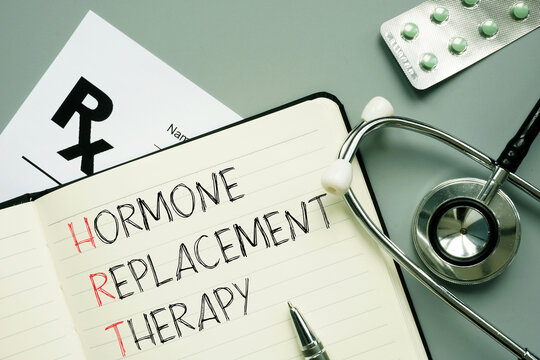
A treatment for hormonal deficits or imbalances in the body is called hormonal therapy. It is designed to supplement or replace hormones that naturally decline or become imbalanced with age, health conditions, or other factors. Hormones regulate a wide range of bodily functions, and when they are not at optimal levels, they can lead to various symptoms such as fatigue, mood swings, and reduced vitality. Understanding the hormonal therapy meaning is essential for anyone considering treatment to restore balance and improve their overall well-being. In this article, we will explore the different types of hormone therapies, their uses, and how they can help individuals live a more balanced and healthy life.
Hormonal Therapy Meaning and Its Role in Health
Hormonal therapy means providing the body with the hormones it may be lacking. Hormonal therapy meaning encompasses a broad spectrum of treatments used to correct imbalances caused by aging, medical conditions, or other underlying factors. One of the most common forms of hormone therapy is hormone replacement therapy (HRT), especially for women during menopause. Progesterone and estrogen supplements are used in “hormone replacement therapy” to address symptoms like mood swings, hot flashes, and night sweats. For men, testosterone replacement therapy is often used to restore testosterone levels, which naturally decline with age, helping to address symptoms like fatigue, muscle loss, and reduced libido.
Types of Hormone Therapy
Hormonal therapy means different things depending on the needs of the individual. The most widely known treatment is hormone replacement therapy (HRT), which involves replacing hormones that are no longer being produced in sufficient amounts. HRT is primarily used by women during menopause when levels of estrogen and progesterone drop significantly. Hormonal replacement therapy in this context is about restoring these hormones to alleviate uncomfortable symptoms and reduce the risk of osteoporosis and heart disease.
Another form of hormone therapy is testosterone replacement therapy (TRT) for men, which addresses low testosterone levels. As men age, their testosterone levels can decrease, leading to symptoms like decreased energy, loss of muscle mass, and sexual dysfunction. Hormonal therapy means providing testosterone through injections, patches, or gels to help restore these levels and improve overall quality of life.
Bioidentical hormone replacement therapy (BHRT) is also an option. This therapy uses hormones that are chemically identical to those naturally produced in the body. BHRT is frequently promoted as a more “natural” substitute for artificial hormones. The hormonal replacement therapy in this case is the use of plant-derived hormones, which are custom-compounded to meet an individual’s specific needs. BHRT is commonly used to treat symptoms of menopause, but it can also be used for men experiencing low testosterone levels.
Selective estrogen receptor modulators (SERMs) and aromatase inhibitors are other forms of hormonal therapy used mainly in cancer treatment. These therapies aim to block or regulate hormone receptors, particularly for hormone-sensitive cancers like breast cancer.
Why Hormonal Therapy is Important
Hormonal therapy means more than just symptom relief; it is a proactive way to address the underlying imbalances that affect overall health. Hormonal imbalances can lead to serious long-term health issues if left untreated. For women, menopause-related hormonal imbalances can increase the risk of osteoporosis, heart disease, and cognitive decline. For men, untreated low testosterone can lead to muscle loss, fatigue, and a decline in overall vitality. Hormonal therapy means addressing these issues early to help mitigate risks and improve quality of life.
By balancing hormone levels, hormonal therapy can help prevent conditions associated with aging and hormonal fluctuations. It plays a critical role in improving energy, mood, bone health, and even cognitive function. Hormonal replacement therapy’s meaning and benefits are particularly evident when considering the long-term health improvements and enhanced quality of life that many individuals experience after starting treatment.
Hormonal Therapy and Quality of Life
Hormonal therapy means a significant boost to overall health, especially for those who are struggling with hormonal imbalances. Whether it’s hormone replacement therapy (HRT) for women or testosterone replacement therapy for men, these treatments can help restore balance and alleviate many of the discomforts caused by hormonal changes. For women going through menopause, hormonal therapy means relief from symptoms like hot flashes, sleep disturbances, and mood swings. For men, testosterone replacement therapy means increased energy, improved libido, and better muscle mass.
Hormonal therapy also improves overall vitality, sleep patterns, and cognitive function. By restoring the body’s natural hormone levels, hormonal therapy supports better mental clarity, reduces stress, and helps maintain emotional stability. Many individuals find that their mood and energy levels improve significantly once their hormone levels are balanced, making them feel more vibrant and youthful.
If you’re considering hormone therapy, it is also essential to get it done from a renowned clinic or facility. Well, one such is the anti-aging centre. They offer hormone therapy as part of its holistic approach to health and wellness. With advanced testing, tailored treatment plans, and expert care, TAC helps you manage your hormones effectively and improve your overall health and well-being.
Conclusion
Hormonal therapy means a personalized approach to health that can provide significant benefits for individuals dealing with hormone imbalances. Whether it’s hormone replacement therapy (HRT), testosterone replacement therapy, or bioidentical hormone therapy, each type of treatment serves to restore balance and improve overall health. The hormonal replacement therapy meaning lies in its ability to address the root causes of various symptoms, from mood swings and fatigue to more serious long-term health risks. By undergoing hormone therapy, individuals can regain vitality, reduce the risk of chronic health conditions, and improve their quality of life. It’s crucial to understand the hormonal therapy meaning and its role in supporting long-term health. Working with TAC can ensure the best approach to treatment, and regular monitoring can help maintain optimal hormone levels throughout life.
